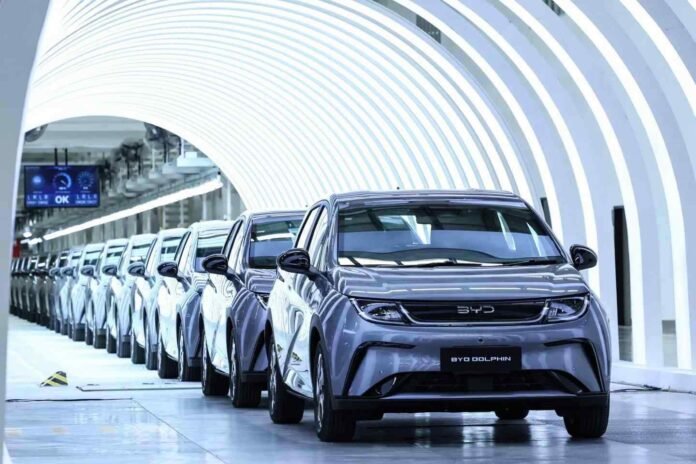KARACHI — Pakistan’s auto sector is sounding the alarm over the government’s draft Motor Vehicles Industry Development Act 2025, warning it could do more harm than good by raising costs, scaring off investors, and even criminalising standard business practices.
Industry Says Law Drafted Without Consultation
Executives argue the legislation was drawn up without meaningful input from manufacturers or consumer groups. Instead, they say it gives sweeping new powers to the Engineering Development Board (EDB), a body critics describe as lacking both accountability and technical expertise.
The Pakistan Automotive Manufacturers Association (PAMA) has formally objected, with Director-General Abdul Waheed Khan calling the draft “deeply troubling” in a letter to the Ministry of Industries earlier this month.
Routine Issues Treated as Criminal Offences
One of the industry’s biggest concerns is the draft’s treatment of issues like recalls and warranty disputes as cognisable offences, enforceable by the Federal Investigation Agency (FIA). Automakers warn that equating such routine matters with criminal activity could shake investor confidence at a time when the economy is already fragile.
“This is effectively criminalising manufacturing and trading activities without clear justification,” Khan said, adding that the FIA’s involvement is “unacceptable.”
Duplication of Existing Rules
Manufacturers argue the proposed law overlaps with — and in some cases contradicts — existing frameworks. The sector already operates under the Auto Policy 2021–26, consumer protection laws, and international safety standards. Local assemblers point out they comply with 17 UN Economic Commission for Europe benchmarks, while recalls, warranties and after-sales service are standard practice.
Concerns Over EDB’s Discretionary Powers
Perhaps the most controversial provision is the level of authority granted to the EDB. Unlike regulators such as the Securities and Exchange Commission of Pakistan (SECP), the EDB has no legislative mandate, yet the draft law would allow it to approve vehicle types, oversee repairs, regulate recalls, and even enter business premises without warrants.
Khan argued that the EDB neither has the facilities to issue type approvals nor the capacity to monitor thousands of workshops nationwide. “Such provisions are impractical at best and open to misuse at worst,” he warned.
Impact on Consumers
While the draft law is being sold as consumer-friendly, automakers caution the opposite may happen. Added compliance costs, they say, will push vehicle prices higher, while vague language such as “significant risk” or “unfair contract terms” could be applied arbitrarily.
Call for Smarter Regulation
Industry representatives stress they are not opposing regulation altogether. Instead, they want targeted rules and stricter enforcement of existing laws, rather than a fresh legal framework that duplicates obligations and burdens documented businesses while leaving the informal sector untouched.
Among the specific objections:
- Section 5 unfairly makes manufacturers liable for accidents caused by reckless or untrained drivers.
- Section 9 requires a conformity certificate that already exists in current practice.
- Oversight of repair workshops under the EDB is seen as legally questionable and logistically impossible.
What Comes Next
The auto industry is urging the government to delay the legislation and hold comprehensive consultations with manufacturers, provincial authorities and consumer groups. Without changes, executives warn, the draft risks stifling growth in an industry already struggling with rising costs, supply chain challenges, and falling demand.

